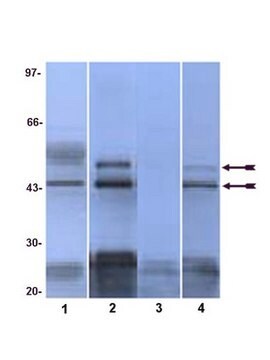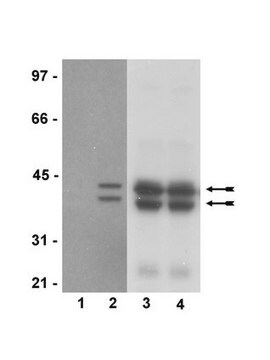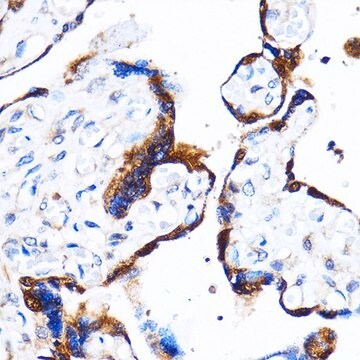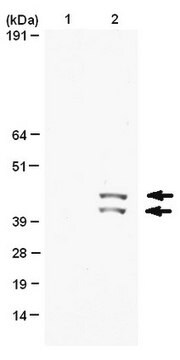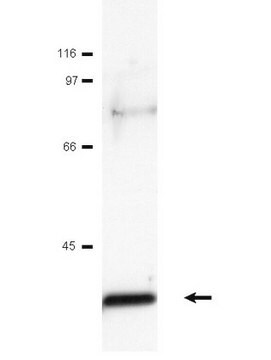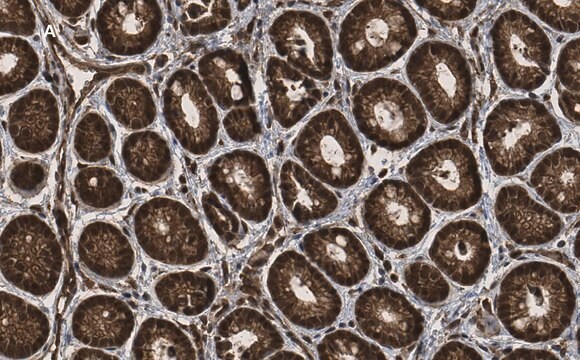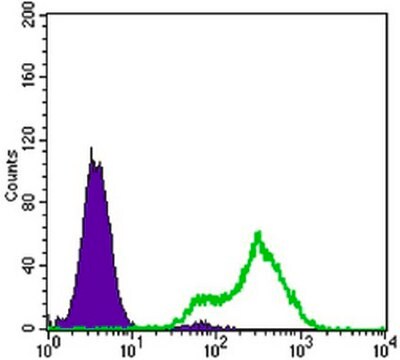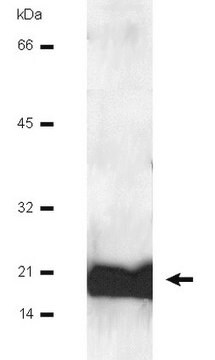SAB4200176
Anti-JNK antibody, Mouse monoclonal
clone 1C2, purified from hybridoma cell culture
Sinónimos:
Anti-JNK-46, Anti-JNK1, Anti-JNK1A2, Anti-JNK21B1/2, Anti-JUN N-terminal kinase, Anti-MAP kinase 8, Anti-MAPK8, Anti-PRKM8, Anti-SAPK1, Anti-stress-activated protein kinase 1
About This Item
Productos recomendados
biological source
mouse
conjugate
unconjugated
antibody form
purified immunoglobulin
antibody product type
primary antibodies
clone
1C2, monoclonal
mol wt
antigen ~43 kDa
species reactivity
mouse, rat, human
concentration
~1.0 mg/mL
technique(s)
western blot: 1-2 μg/mL using using whole extracts of mouse NIH-3T3 cells
isotype
IgG2a
UniProt accession no.
shipped in
dry ice
storage temp.
−20°C
target post-translational modification
unmodified
Gene Information
human ... MAPK8(5599)
mouse ... Mapk8(26419)
rat ... Mapk8(116554)
General description
Application
Biochem/physiol Actions
Monoclonal Anti-JNK antibody is specific for human, mouse and rat JNK1 (43 kDa) and/or JNK2 (55 kDa).
Physical form
Disclaimer
¿No encuentra el producto adecuado?
Pruebe nuestro Herramienta de selección de productos.
Storage Class
10 - Combustible liquids
flash_point_f
Not applicable
flash_point_c
Not applicable
Certificados de análisis (COA)
Busque Certificados de análisis (COA) introduciendo el número de lote del producto. Los números de lote se encuentran en la etiqueta del producto después de las palabras «Lot» o «Batch»
¿Ya tiene este producto?
Encuentre la documentación para los productos que ha comprado recientemente en la Biblioteca de documentos.
Nuestro equipo de científicos tiene experiencia en todas las áreas de investigación: Ciencias de la vida, Ciencia de los materiales, Síntesis química, Cromatografía, Analítica y muchas otras.
Póngase en contacto con el Servicio técnico